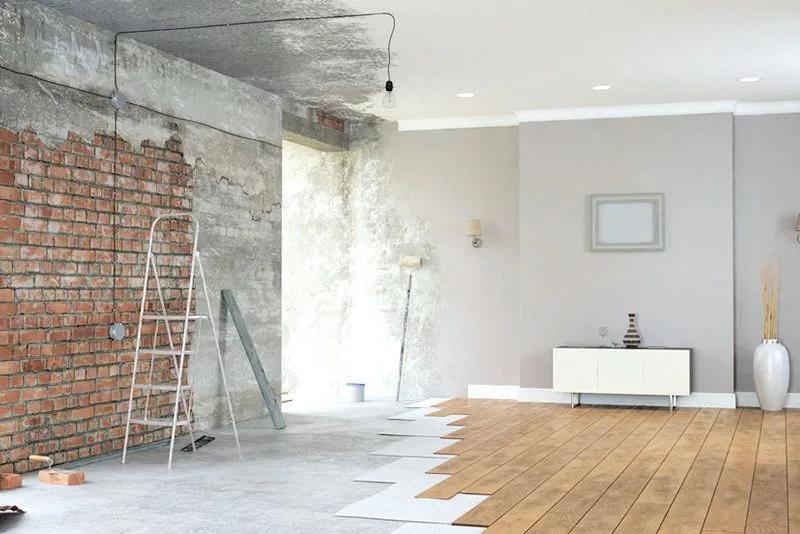Heraklion is experiencing a wave of home renovations, with hundreds of properties undergoing refurbishment across the city. Many abandoned houses are being brought back to life, while old commercial spaces—especially those on the outskirts of the historic walls rather than in prime shopping districts—are being converted into residential properties. The city, at this moment, appears to be undergoing a transformation. If it weren’t for the still-closed storefronts, even in once-bustling commercial streets, one might think Heraklion has returned to its former prosperity.
What’s Behind the Renovation Boom?
Why is there such a surge in renovations and conversions rather than new construction? According to Giorgos Tavernarakis, president of the Technical Chamber of Eastern Crete (TEE/TAK), there is indeed a significant increase in building activity, but mainly in upgrades to existing properties rather than in new developments.
“Government programs like ‘Exoikonomo’ (Energy Efficiency Program) and other financial incentives play a crucial role in this trend, helping property owners improve their assets,” he explains.
From Abandoned Houses to Modern Homes
Renovations of old homes, even those that have been unoccupied for years, are happening everywhere—from the city center to the most remote neighborhoods. The process is relatively straightforward in terms of bureaucracy, which is largely handled by engineers who are currently overwhelmed with work.
Meanwhile, the conversion of former commercial spaces into residential units is concentrated in areas near the city center and just beyond the historic walls. Although these projects require additional procedures, determined owners find ways to navigate the process.
But what is the real outcome of these efforts?
Tavernarakis clarifies, “This is not economic growth in the true sense. Growth would mean the creation of new jobs, which is not necessarily the case here. Instead, property owners are looking to generate additional income, either through Airbnb rentals or long-term leasing.”
The Airbnb Factor and Rising Rents
The impact of Airbnb remains uncertain, with real estate experts warning that taxation policies could influence whether short-term rentals remain profitable. If tax burdens increase significantly, property owners might shift their focus to long-term rentals instead.
What is certain, however, is that rental prices have skyrocketed, and no one can predict where the market will go from here.
According to Artemis Mavraki, president of the Eastern Crete Real Estate Association, the primary motivation behind these renovations is to boost rental income.
“The rising rental prices have encouraged property owners to invest in renovations, either for Airbnb listings or long-term leases. The transformation of shops into residences is happening mostly on the outskirts of the commercial center, as retail activity is now concentrated in the core of the city’s shopping district.”
A Boost for the Construction Sector?
The surge in renovations should, in theory, benefit construction workers and related trades. While there has been an increase in demand for labor, the reality is more complex.
Giannis Gonianakis, president of the Heraklion Builders’ Union, notes that while work opportunities have improved recently, the industry is still far from its former strength.
“In 2010, there were 10,000 registered builders in Heraklion, according to EFKA (the Greek social security fund). By 2022-23, that number had dropped to just 2,300.”
Despite the renovation boom, the city’s construction sector has yet to fully recover from past economic downturns. Nonetheless, the trend of repurposing existing buildings reflects a broader shift in Heraklion’s urban landscape, as property owners seek new ways to make the most of their assets.





